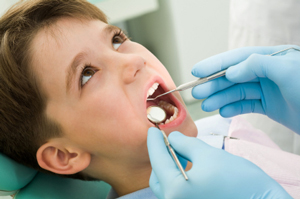
February 8, 2016
Bridging The Great Dental Divide—Cost-Effectively
By Michael D. Shaw
A few years ago, this column examined the problem of getting much-needed dental care to lower income Americans. The so-called “Great Dental Divide” was exemplified—tragically—in the case of a 12-year-old boy from Prince George’s County, MD, who literally died from lack of basic dental care in 2007. An untreated abscessed tooth eventually led to a fatal brain infection.
As if that weren’t bad enough, the devastating failures of the system were melodramatically underscored, in that the unavailable $80 tooth extraction directly caused the more than $250,000 unsuccessful acute effort to save his life. To be sure, this tragedy did lead to a guaranteed dental benefit in the Children’s Health Insurance Program (CHIP) portion of Medicaid.
That’s all very well, but care still has to be brought to these Medicaid patients. Thus, the emergence of Dental Management Service Organizations (DMSOs) and Dental Service Organizations (DSOs). Another term you might see is Dental Practice Management Companies (DPMCs). Broad brush, they all refer to “corporate dentistry.” Usually, a DSO has internal management, while a DMSO implies an outside management contract. However, the three terms are sometimes used interchangeably.
Nomenclature notwithstanding, how have these groups contributed to the improvement in dental care, especially among those traditionally the poorest served?
Listen to Allen Dobson, of Dobson DaVanzo & Associates, a health economics and policy consulting firm: “Existing literature suggests that the emergence of the DSO model in recent years has contributed to significant dental access gains among the Medicaid patient population.” The literature referenced is cited and summarized in a June, 2012 brief from the Children’s Dental Health Project, entitled “Dental Visits for Medicaid Children: Analysis and Policy Recommendations.”
Which brings us to a just-released study—to coincide with National Children’s Dental Health Month—undertaken by Dobson DaVanzo, which focused on Kool Smiles, a national dental provider. Kool Smiles accepts Medicaid at its more than 120 locations, spread across 15 states and the District of Columbia, primarily in underserved communities that have historically lacked access to dental care.
As the study concludes…
Detailed analyses within and across states over time suggest that Kool Smiles is a low cost and conservative provider of pediatric dental service for children with Medicaid. Kool Smiles routinely provides fewer fillings, simple extractions and pulpotomies, and a comparable number of x-rays and stainless steel crowns, per patient than non-Kool Smiles patients. This confirms that Kool Smiles’ focus on routine cleaning and hygiene reduces the number of restorative and extraction procedures required per patient, hence improving oral health for this underserved and vulnerable population.
The numbers are impressive:
Across all states and years analyzed for the geographic area in which Kool Smiles operates, its providers perform 15 percent fewer total dental services per Medicaid patient than non-Kool Smiles providers. This results in a 33 percent lower monthly Medicaid expenditure per patient.
The difference in the monthly Medicaid expenditures per patient among Kool Smiles and non-Kool Smiles providers, within the same geographic area and year, across all dental services range from 23 percent (Georgia, 2011 and Texas, 2014) to 62 percent (Mississippi, 2011).
If the Kool Smiles care protocol were to be applied to non-Kool Smiles providers—operating in the same geographic area—for GA, IN, LA, MS, SC, TX, and VA, Medicaid could save about $193 million or treat an additional 790,000 underserved children.
Extrapolate this out to covering the entire states, and now you’re looking at an annual Medicaid savings of over $550 million, thus treating an additional 1.9 million children across all states examined.
I’ll give the last word to Dr. Polly Boehnlein, Board-Certified Pediatric Dentist and Managing Dental Director for Kool Smiles…
“Oral health improves when children have access to regular, preventive dental care. By providing a dental home for children utilizing Medicaid benefits, a group that has historically lacked access to a dentist, we are able to reduce the potential for more expensive procedures over time. If we can increase access, improve the oral health of these patients, and lower Medicaid costs in the process, we best serve both our patients and taxpayers.”
